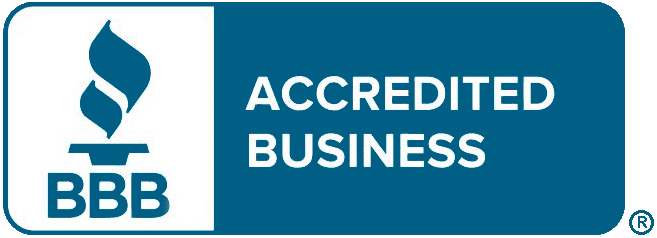Modern retirement comes with a plethora of risks and hurdles that could potentially offset your chances of living the post-career life you both desire and deserve. Some of those risks, however, can be mitigated with a proper, comprehensive plan that accounts for a person’s unique circumstances and goals. Why, then, do just 35% of Americans enlist the help of a financial advisor for such an important and exciting yet volatile period of their lives?
Recently on Forbes, Nolan Stokes covered six ways that working with a financial professional can offer advantages beyond simple monetary value as well as tips for finding one who’s a good fit for you. Nolan is part of the Forbes Finance Council, an invitation-only organization for executives in successful accounting, financial planning and wealth management firms. You can read the original article here: https://www.forbes.com/sites/forbesfinancecouncil/2023/09/11/6-advantages-of-working-with-a-financial-professional/
1. Intimate Knowledge Of Markets And Products
In addition to the 40 hours per week spent creating financial, retirement and income plans for their clients, financial professionals can have a lengthy background of working in their field and collecting licenses and designations. This gives them an intimate knowledge of the options you have in your plan for the present and future.
They can educate you about those products, their features and their pros and cons, giving you a better idea of what you may and may not want to incorporate into your plan. They’re also trained to recognize trends in the market, meaning they may be better prepared to advise clients and offer informed opinions.
2. Hands-On Investments
Some investors elect to go it alone, selecting investments they’ve researched or believe in. Furthermore, some rely on hype to dictate their investments, and as we well know, hype dies down.
Depending on your financial professional, they may have established a method or diverse asset allocation that offers the opportunity for growth while also mitigating the downside of certain sectors of your portfolio. Granted, nothing in the market is guaranteed, but a financial advisor or professional can help you establish a strategy that works for you, all while instilling confidence.
3. Individualized, Goal-Based Planning
Money is personal, and even though we may not always be comfortable discussing finances, it’s important to be open and honest with a financial professional who has your best interests in mind.
Additionally, they should never use a cookie-cutter approach. They should customize their planning process and their recommendations based on your situation and where you’d like to be in the future. It might start with a discovery meeting, during which your financial professional asks plenty of questions. Be sure to come prepared with any pertinent information and documentation, as anything about your financial situation can be helpful when crafting your plan.
4. Understanding Of Market Risk
Financial professionals understand the potential of the market, but they also understand its pitfalls. It’s important to recognize that nothing is ever guaranteed in the market, meaning that there is no floor to your investments.
It’s crucial to diversify your portfolio in accordance with your own tolerance for risk, not the amount of risk a standard approach might call for. This can mean gauging how much you might need for retirement, then weighing it against how much you have exposed to market risk. It can also be helpful to explore products or vehicles that are not directly linked to the market and offer downside protection.
5. Mitigating Your Tax Bill
Sometimes keeping more of your own money is more advantageous than pursuing growth, and financial professionals are well versed in tax strategies to help you do that. Some of those strategies might include Roth conversions, which is when you convert tax-deferred funds to tax-free funds. You will, however, be forced to foot the tax bill at the time of conversion. An advisor can help you determine when a conversion might be helpful.
Tax mitigation can also come with an estate and legacy plan that helps you pass wealth to your beneficiaries in a tax-advantaged manner. This can save your family from both a financial perspective and an emotional perspective.
6. A Personal And Educational Relationship
More than anything, a financial professional can give you a trusted ear and voice when you need to discuss your finances. With money being such a private matter, relationships with an advisor or planner tend to become much more personal, sometimes evolving into friendships rather than remaining simply business partnerships.
An honest and dependable advisor can also be an infinitely valuable resource for information and education. An unfortunate truth is that financial illiteracy is an epidemic sweeping the nation.
Roughly 39% of Americans reported not having a trusted source of financial information, according to a 2022 survey by the National Financial Educators Council. A financial professional with your best interests should be that source, offering help both on a day-to-day basis and in your long-term plan.
How To Find The Right Financial Advisor For You
Just like any long-term relationship, finding the right financial advisor with whom you want to go the distance can be tricky. Luckily, there are a few ways to tell if an advisor will be the right partner for you.
First and foremost, before you meet with any prospective financial professional, take a personal inventory of your values and goals. Ask yourself your reasons for searching for a financial advisor. Maybe you’re looking for help with the day-to-day management of your finances, or maybe you’d like help investing for your future or your retirement. Different advisors will provide different services.
Additionally, money is personal, so you and your advisor must be compatible and able to trust one another. When meeting with candidates, assess their goals. Do their investing philosophies match yours, and do you find them to be trustworthy both as a source of information and in the management of your funds? Remember, if something feels wrong, it just might be, and with your future at stake, it can be beneficial to trust your instincts.
Furthermore, research the different types of advisors. A fee-based fiduciary is legally required to work in your best interests while other types of investment and financial advisors may only be required to recommend strategies and products based on suitability. Whether it’s legally, ethically or morally, it’s a good idea to ensure that your advisor has your best interests in mind and sits on your side of the table when advising and making recommendations.
If you have any questions about your own personal situation, please don’t hesitate to reach out to Stokes Retirement Group at (724) 762-4084.
The information provided here is not investment, tax or financial advice. You should consult with a licensed professional for advice concerning your specific situation.





